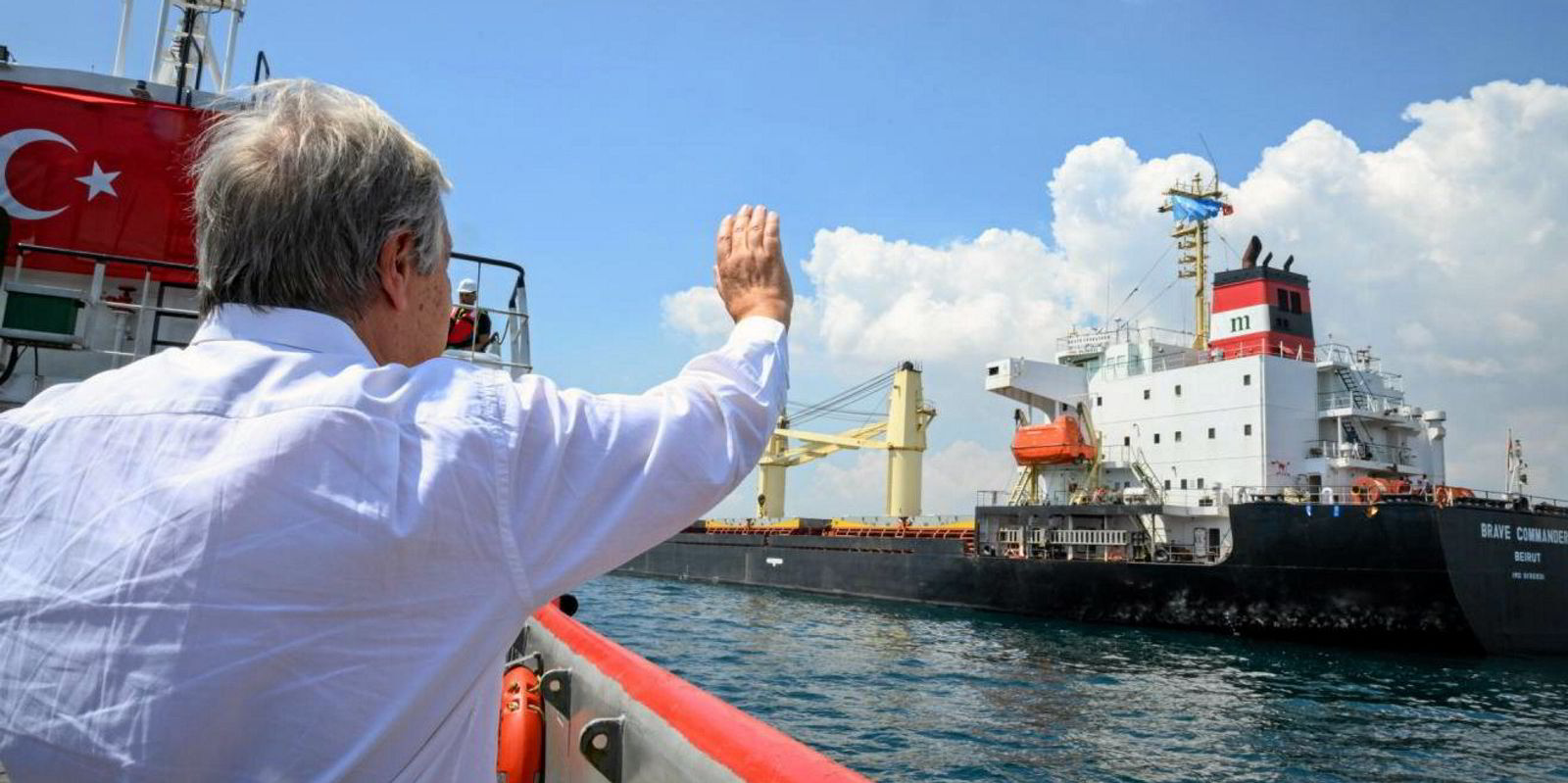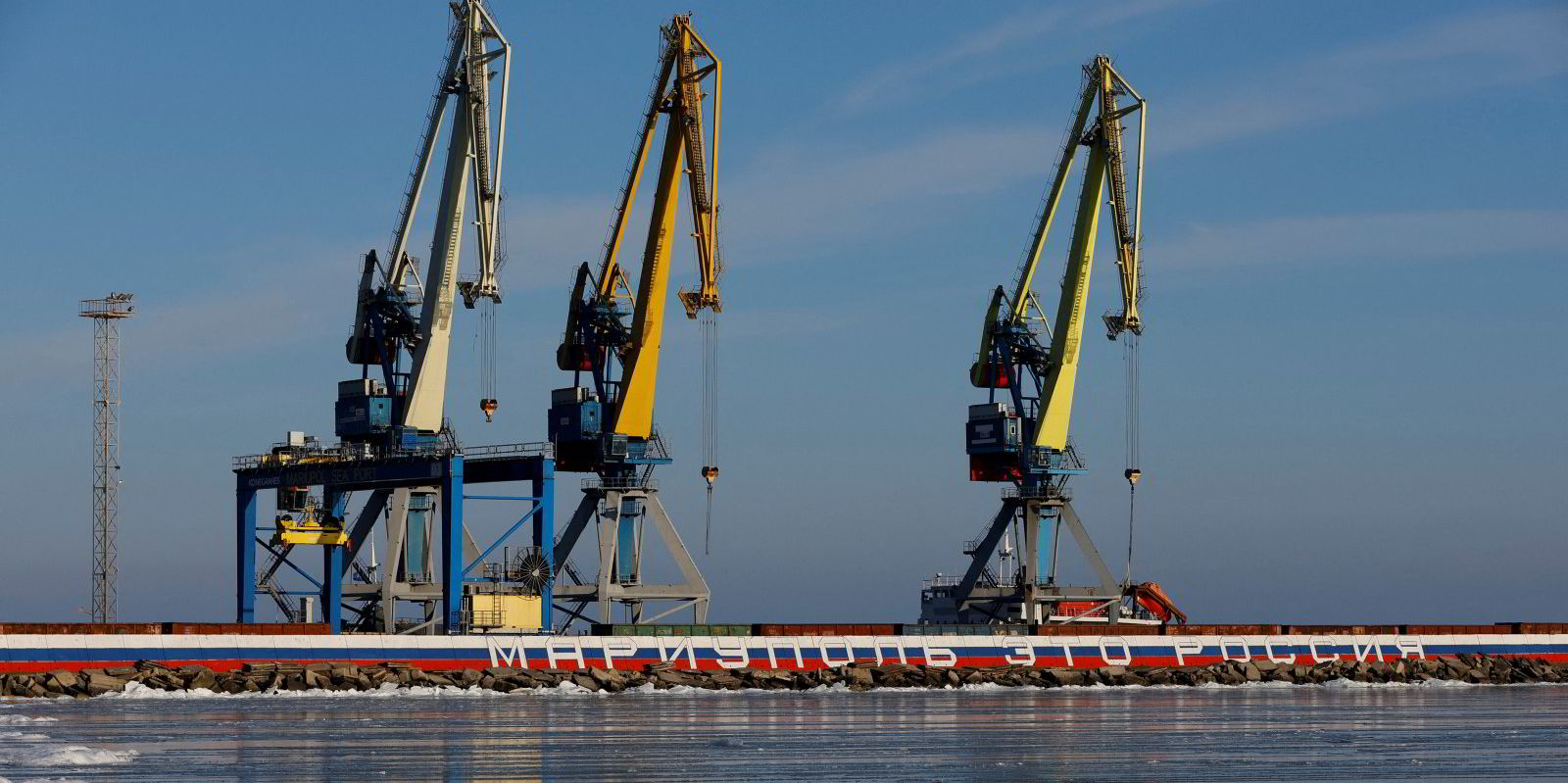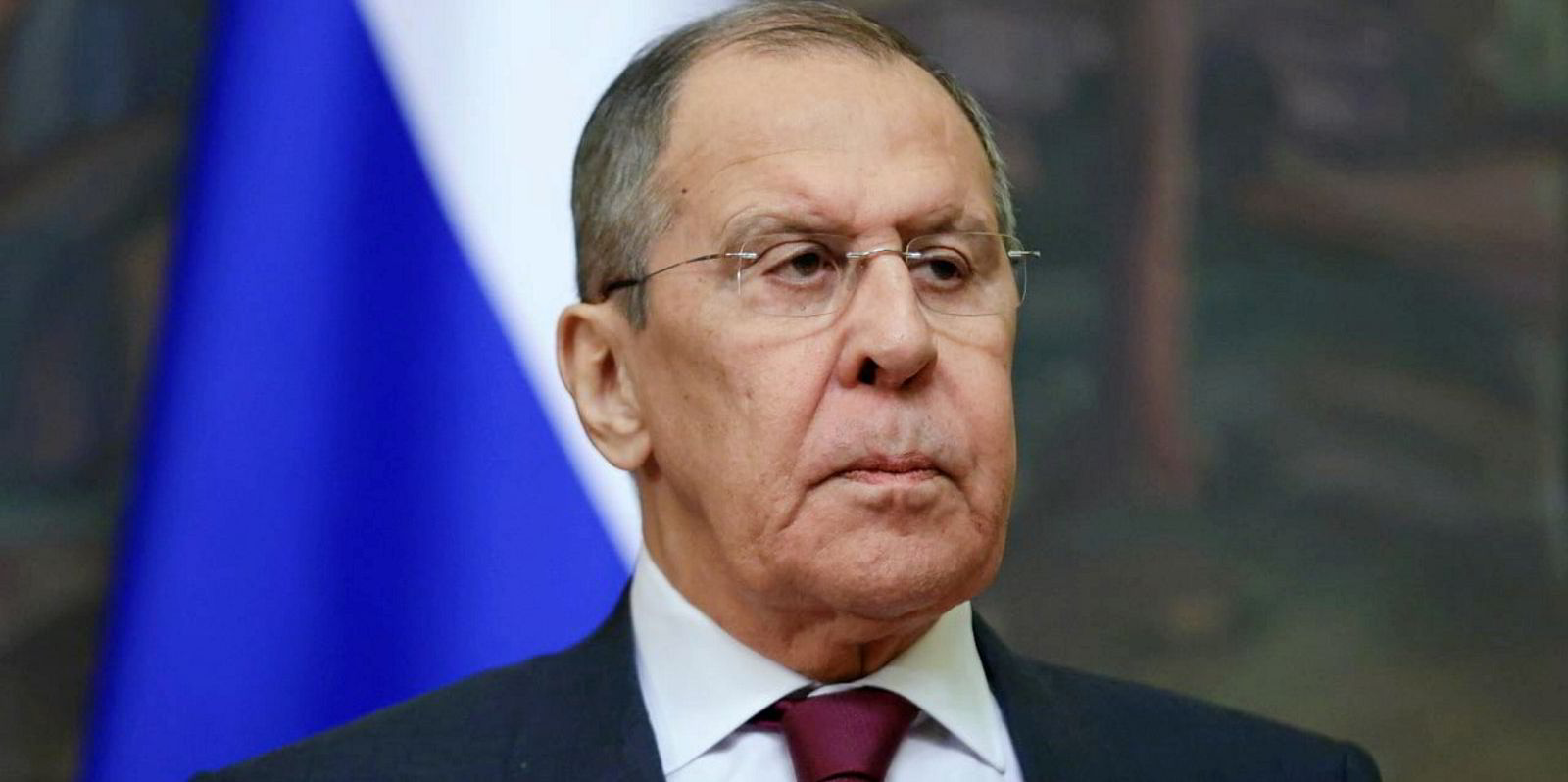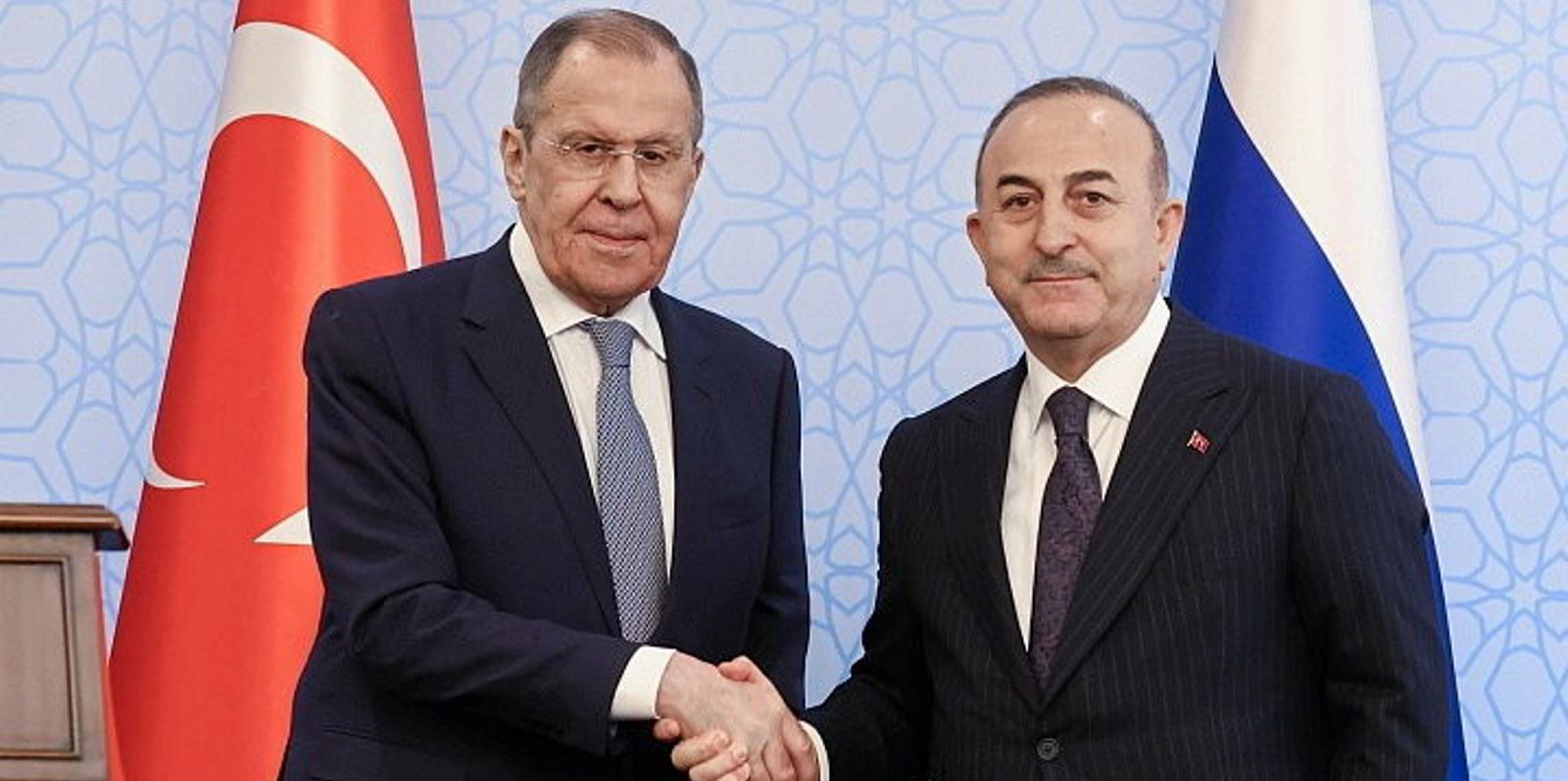In another sign that the Black Sea corridor for Ukrainian grain is winding down, the United Nations announced on Tuesday that its implementation is slowing to a halt.
“Since 1 May, the JCC inspection rate has dropped significantly to an average of 2.9 completed inspections daily,” the Istanbul-based Joint Coordination Centre (JCC) of the Black Sea Grain Initiative (BSGI) said.
That compares with an average of about four ships per day in previous months.
To make matters worse, no vessel inspections at all took place over the previous two days.
“The Office of the UN Coordinator and the delegation of Turkiye [Turkey] are working closely with all sides with the aim to facilitate movements and inspections of inbound and outbound vessels within the framework of the initiative and agreed procedures while discussions for the future of the initiative continue,” the JCC added.
The prospects of these discussions bearing fruit, however, are bleak.
Russia, which is accused by Ukraine of ordering its Istanbul-based inspectors to drag their feet, has already stated it has no interest in continuing the BSGI — at least in the way it is currently running.
Russia accuses Western governments of failing to lift economic and other sanctions that would allow the unhindered, parallel export of its grain and ammonia, as originally agreed when the corridor got up and running in August last year.
Moscow also recently resuscitated security concerns over the UN-led scheme.
Shipowners, which have benefited nicely from a trade fetching twice the average earnings for handysizes and supramaxes, have already seen the writing on the wall.
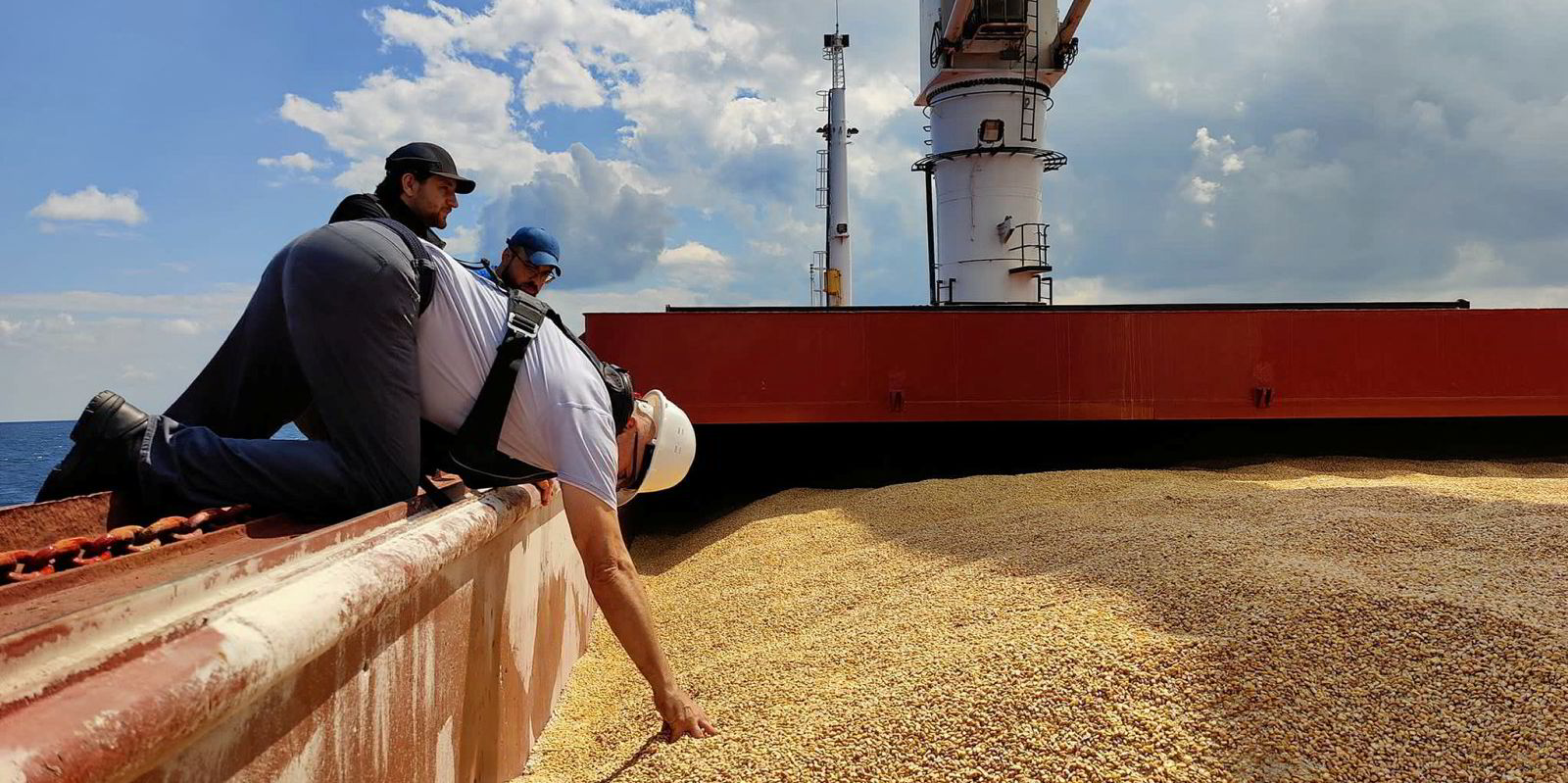
The slowdown in Ukrainian port calls under the scheme is “reflecting the worries of many shipowners having their vessels stuck ahead of the renewal of the deal — or lack thereof”, Allied Research wrote on 8 May. “Signposts are not encouraging with speculation leaning closer to a discontinuation.”
Not all hope is lost. Latest statements by Russian officials suggest that the Kremlin is examining a set of proposals submitted by the UN late in April to move the initiative forward.
Turkey, which brokered the BSGI alongside the UN, announced on Tuesday that four-part talks with Russia and Ukraine will be held in Istanbul on 10 and 11 May to extend the initiative “in order to prevent damage to the countries in need”.
Furthermore, “a detailed and safe evacuation plan for the return” of merchant ships and crews still stranded in Ukraine after 15 months of war there will be part of the agenda as well.
Russia, however, has signalled it has little hope of a solution under which its own exports of grain, fertiliser and ammonia will get UN blessing.
Russian inspectors warned as early as April that they would register ships under the initiative only after receiving guarantees from shipowners to complete their participation in the scheme by 18 May.
Furthermore, Russian foreign minister Sergei Lavrov has urged Ukraine to continue its grain exports by land — an option that will probably foment further protest by farmers in neighbouring Poland or Romania, who see their produce crowded out by Ukrainian imports.
In the meantime, Russia is taking steps to boost its own agricultural exports, which it has been pursuing independently anyway, even though largely under the radar.
On Sunday, a Russian official said the self-styled Donetsk People’s Republic is resuming grain exports from the Russian-occupied Ukrainian port of Mariupol under its separatist administration.
Russia's opponents in the war regard these shipments as illicit trade of looted agricultural products.
What about ammonia?
According to the latest UN figures, total exports of Ukrainian grain and foodstuffs under the BSGI since August were 29.8m tonnes.
A small part of this, 595,169 tonnes, accounts for UN World Food Programme humanitarian operations in Afghanistan, Ethiopia, Kenya, Somalia and Yemen.
In its latest update, the UN acknowledges that no fertiliser and its key ingredient ammonia have been exported under the scheme so far.
This seems to substantiate at least part of Russian claims that the UN-mediated scheme has not operated fully in the way it was supposed to, namely in furthering Russia’s agricultural exports as well.
Despite the upheaval, grain markets seem unruffled about a possible halt of the initiative.
“Global corn and wheat prices have continued to decline and have now fallen below pre-war levels, indicating an improvement in cargo availability,” Braemar said in a report dated 4 May.
“Australia and Canada have been identified by some agri-analysts as able to introduce more wheat into international markets in the near term, while expectation of a very large corn crop from Brazil has eased fears of potential corn shortages.”
